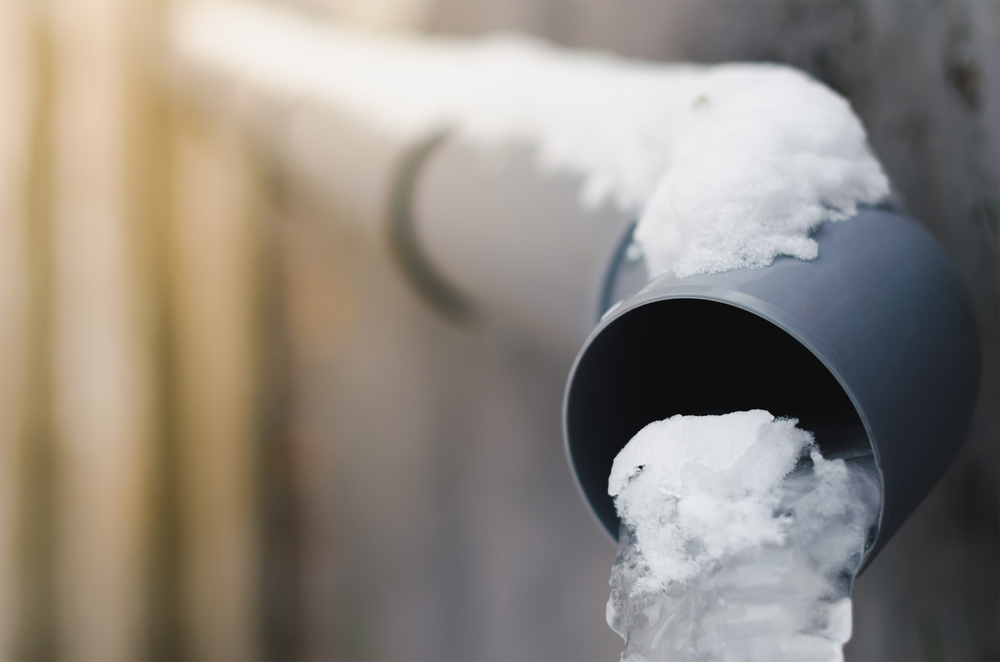Ways to Prevent Frozen Pipes in Winter: Professional Tips
Ways to Prevent Frozen Pipes in Winter: Professional Tips
Blog Article
The writer is making a few good annotation about Winter Plumbing Precautions: Preventing Frozen Pipes in general in this great article down the page.

Winter can ruin your pipes, particularly by freezing pipes. Right here's exactly how to stop it from taking place and what to do if it does.
Intro
As temperatures drop, the risk of frozen pipes increases, possibly leading to costly repairs and water damage. Understanding just how to stop icy pipes is important for property owners in cold climates.
Avoidance Tips
Protecting susceptible pipes
Cover pipes in insulation sleeves or use warmth tape to secure them from freezing temperature levels. Focus on pipelines in unheated or outside areas of the home.
Home heating strategies
Keep interior spaces properly warmed, particularly areas with plumbing. Open up closet doors to enable warm air to distribute around pipelines under sinks.
Just how to identify icy pipes
Seek decreased water circulation from faucets, uncommon smells or noises from pipelines, and noticeable frost on revealed pipes.
Long-Term Solutions
Structural adjustments
Take into consideration rerouting pipelines far from outside walls or unheated locations. Include extra insulation to attics, cellars, and crawl spaces.
Upgrading insulation
Buy high-quality insulation for pipes, attic rooms, and wall surfaces. Appropriate insulation assists keep consistent temperatures and decreases the danger of frozen pipelines.
Safeguarding Outdoor Pipes
Yard hose pipes and exterior taps
Disconnect and drain yard tubes before winter season. Set up frost-proof faucets or cover outside taps with shielded caps.
Comprehending Icy Pipes
What triggers pipelines to ice up?
Pipelines freeze when subjected to temperatures below 32 ° F (0 ° C) for prolonged periods. As water inside the pipelines freezes, it broadens, taxing the pipeline walls and potentially creating them to rupture.
Risks and problems
Icy pipes can bring about water disruptions, residential or commercial property damage, and costly repairs. Ruptured pipes can flooding homes and cause considerable structural damages.
Indicators of Frozen Pipes
Determining icy pipelines early can prevent them from bursting.
What to Do If Your Pipes Freeze
Immediate activities to take
If you presume frozen pipes, keep taps available to eliminate stress as the ice melts. Use a hairdryer or towels taken in warm water to thaw pipes gradually.
Verdict
Protecting against frozen pipes needs positive steps and quick responses. By comprehending the causes, signs, and safety nets, property owners can shield their pipes throughout winter.
6 Proven Ways to Prevent Frozen Pipes and Protect Your Home
Disconnect and Drain Garden Hoses
Before winter arrives, start by disconnecting your garden hoses and draining any remaining water. Close the shut-off valves that supply outdoor hose bibs and leave the outdoor faucet open to allow any residual water to drain. For extra protection, consider using faucet covers throughout the colder months. It’s also important to drain water from any sprinkler supply lines following the manufacturer’s directions.
Insulate Exposed Pipes
Insulating your pipes is an effective way to prevent freezing. Pipe insulation is readily available at home improvement stores and is relatively inexpensive. Pay close attention to pipes in unheated areas such as the attic, basement, crawl spaces, or garage. Apply foam insulation generously to create a buffer against the cold. You can also wrap your pipes in heat tape or thermostat-controlled heat cables for added warmth.
Seal Air Leaks
Inspect your home for any cracks or openings that could let in cold air. Seal any holes around the piping in interior or exterior walls, as well as the sill plates where your home rests on its foundation. Additionally, make sure to keep your garage door closed unless you’re entering or exiting. Leaving it open creates a significant air leak that can lead to frozen pipes.
Allow Warm Air Circulation
During cold snaps, it’s essential to allow warm air to circulate evenly throughout your home. Leave interior doors ajar to promote better airflow. Open kitchen and bathroom cabinets to help distribute heat consistently around the rooms. If you have small children or pets, be sure to remove any household chemicals or potentially harmful cleaners from open cabinets for safety.
Let Faucets Drip
A small trickle of water can make a big difference in preventing ice formation inside your pipes. When temperatures drop significantly, start a drip of water from all faucets served by exposed pipes. This continuous flow helps prevent the water from freezing. Additionally, running a few faucets slightly can relieve pressure inside the pipes, reducing the chances of a rupture if the water inside does freeze.
https://choateshvac.com/6-proven-ways-to-prevent-frozen-pipes-and-protect-your-home/

Do you really like more info about Winter Plumbing Precautions: Preventing Frozen Pipes? Make a remark down below. We would be pleased to see your ideas about this post. Hoping that you come back again later on. For those who enjoyed reading our blog post if you please be sure to share it. I treasure reading our article about Winter Plumbing Precautions: Preventing Frozen Pipes.
Click Here Report this page